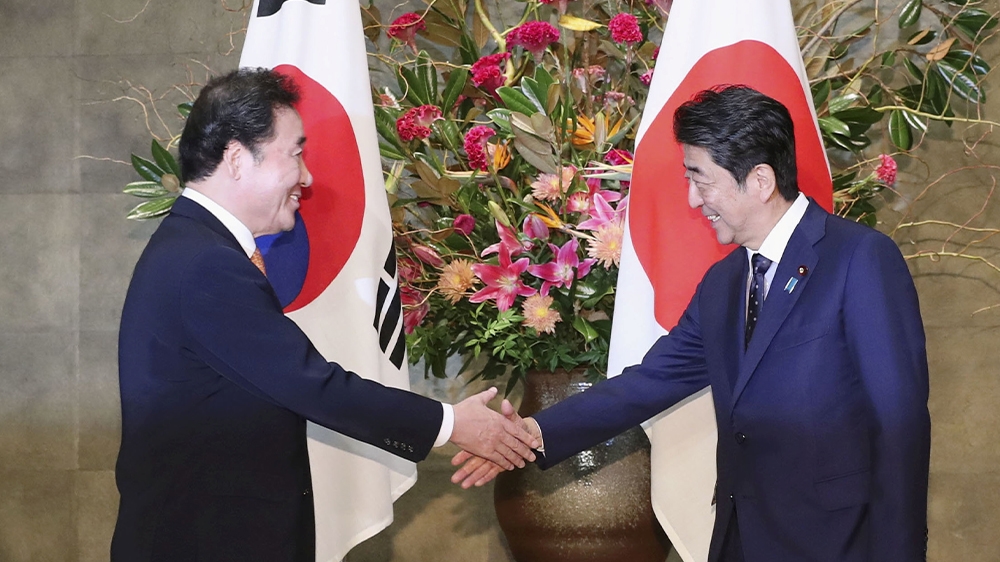South Korea to continue with Japan intelligence pact
Seoul reverses decision not to renew GSOMIA, which will lapse Saturday, over dispute on Japan’s colonisation of Korea.

South Korea announced that was sticking with an intelligence-sharing pact with Japan that it had earlier said it would withdraw from amid a spat over history and trade.
South Korea’s earlier decision to halt intelligence-sharing agreement came amid a bitter feud over history and trade and despite pressure from the United States to maintain a key element of their trilateral security cooperation.
Keep reading
list of 3 itemsUS calls on Seoul to pay more for US troops presence
Japan and South Korea agree on need to cooperate on North Korea
If happened, the expiry of the General Security of Military Information Agreement (GSOMIA) was to intensify discord between South Korea and the US, which wants its two Asian allies to keep their dispute out of security cooperation matters.
Japanese Prime Minister Shinzo Abe on Friday expressed his gladness with South Korea’s decision.
“I stressed the importance of cooperation between Japan and South Korea, and Japan, South Korea and the United States,” Abe said after Seoul informed Tokyo of its decision.
Seoul had given Tokyo three months’ notice in August for ending GSOMIA after Tokyo imposed export controls on South Korea over a dispute stemming from its 1910-45 colonisation of the Korean Peninsula.
The accord is to expire at midnight on Saturday.
|
|
GSOMIA was agreed in 2016 after a years-long US push for a better joint response to North Korea’s growing military threat.
Washington has been unusually strident in its public criticism of South Korea’s decision, which has not been the only source of tension in the relationship.
On Tuesday, US negotiators broke off talks after South Korea rejected demands to hike its contribution five-fold to $5bn to maintain 28,500 US soldiers as a buffer against North Korean aggression.
“The unprecedented breakdown showed the current state of the alliance, where money and business dealings are wearing away shared values and trust that formed its foundation,” said Kim Hong-kyun, a former South Korean deputy foreign minister, said.
The US, South Korea and Japan signed the Trilateral Information Sharing Arrangement (TISA) in 2014, but it is limited to information regarding Pyongyang’s nuclear and missile programmes. GSOMIA covers broader intelligence.
